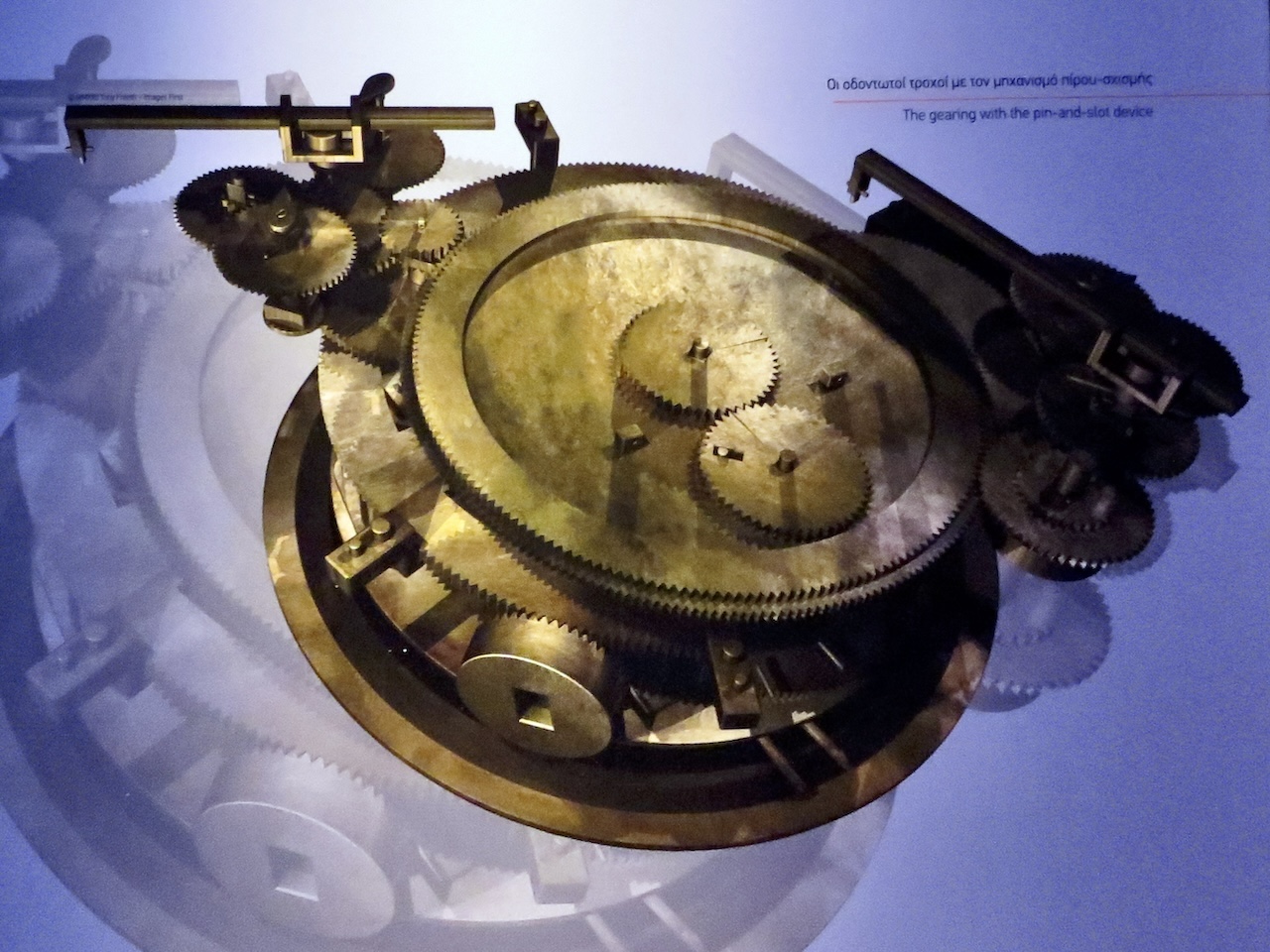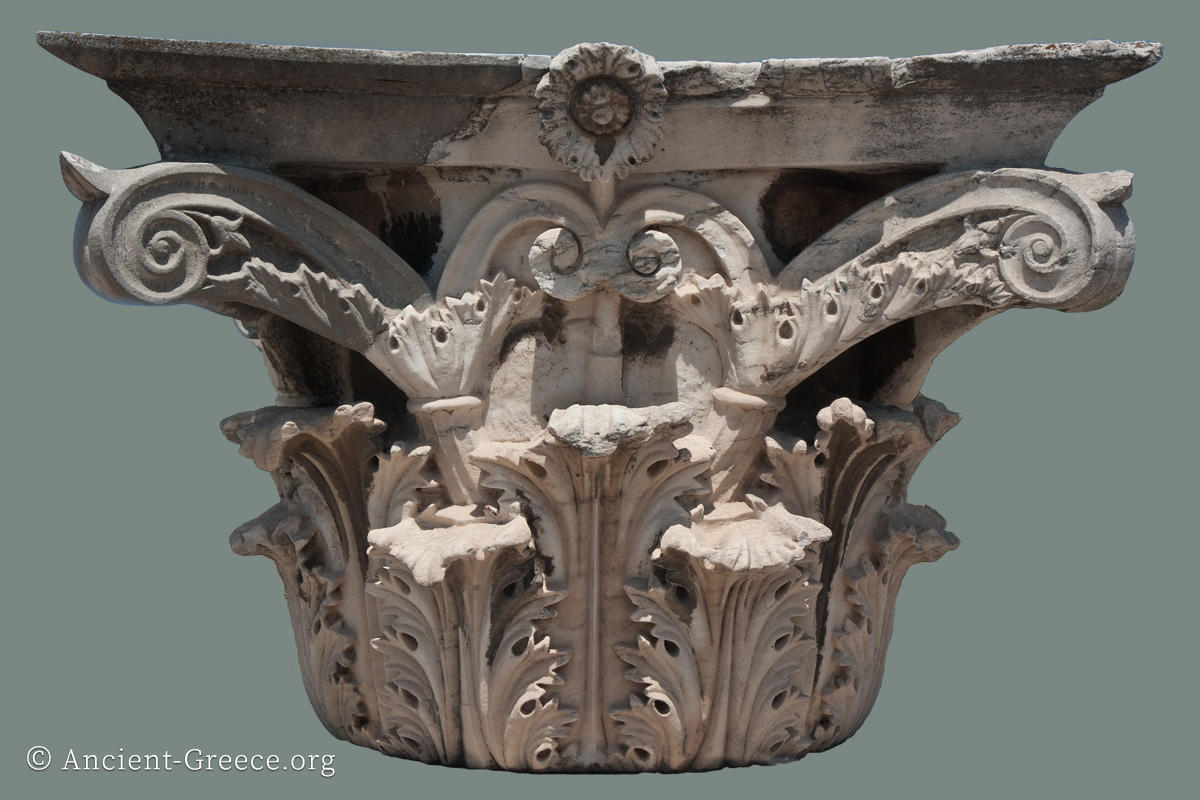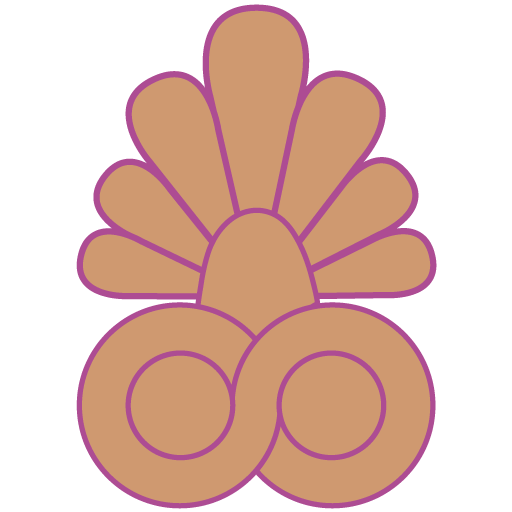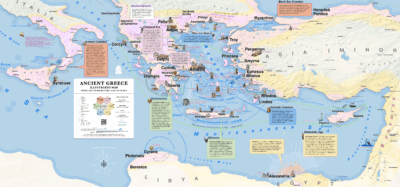| Petralona scull (Dating estimates vary widely from 700000 to 160000 years before present) | Paleolithic Period (2.5 million – 10000 BCE) | |
| Apidima Cave scull fragment is the earliest example of modern humans (early Homo sapiens) found outside Africa | 210000 years ago | |
| Franchthi Cave artifacts indicate seafaring activity | 13000 BCE | Mesolithic Period (13000 – 7000 BCE) |
| Earliest evidence of burials found in Franchthi Cave in the Argolid, Greece | 7250 BCE | |
| Evidence of food producing economy, simple hut construction, and systematic seafaring activity in mainland Greece and the Aegean | 7000 BCE | Neolithic Period (7000 – 3000 BCE) |
| First “Megaron House” at Sesclo, in central Greece | 5700 BCE | |
| Evidence of earliest fortifications at Dimini, Greece | 3400 BCE | |
| 3200 BCE | Early Cycladic Culture (3200 – 2000 BCE) | |
| Houses of Vasiliki and Myrtos Messara Tholoi House of Tiles at Lerna | 3000 BCE | Aegean Bronze Age or Early Bronze Age (3000 – 2000 BCE) Minoan Prepalatial or EMIA, EMIB (3000 – 2600 BCE) Early Helladic Period (3000 – 2000 BCE) |
| 2600 BCE | Minoan Prepalatial Period or: EMIIA, EMIIB, MMIII (2600 – 2000 BCE) | |
| Destruction of Minoan settlements | 2000 BCE | Minoan Protopalatial Period or: MMIA, MMIB, MMI IA, MMI IB, MMI IIA, MMI IIB, LMIA Early (1900 – 1700 BCE) Early Middle Cycladic (2000-1600 BCE) Middle Helladic Period or Middle Bronze Age (2000-1550 BCE) |
| 1750 | Mycenaean Culture (1750 – 1050 BCE) | |
| Destruction of Minoan palaces Settlement of Akrotiri, Thera Grave Circle B at Mycenae | 1700 BCE | Minoan Neopalatial Period or: LMIA Advanced, LMIA Final, LMIB Early, LMIB Late, LMII (1700 – 1400 BCE) |
| Eruption of Thera volcano (sometime between 1627 and 1500) | 1627 BCE | |
| Grave Circle A at Mycenae Legends: Argo Voyage, Heracles, Oedipus | 1600 BCE | Late Bronze Period or The Heroic Age (1600 – 1100 BCE) |
| Tholos Tomb at Mycenae | 1550 BCE | Late Helladic Period (1500 – 1100 BCE) Late Cycladic Period (1500 – 1100 BCE) |
| Linear B writing (1450-1180) | 1450 BCE | |
| Mycenaean Palaces Evidence of expanded Mycenaean trade at Levand | 1400 BCE | Minoan Postpalatial Period or: LMIIIA1, LMIIIA2, LMIIIB, LMIIIC (1400 – 1100 BCE) |
| Palace of Knossos destruction | 1370 BCE | |
| “Sea Peoples” begin raids in the Eastern Mediterranean | 1300 BCE | |
| Trojan War (1250 or 1210) | 1250 BCE | |
| Destruction of many Mycenaean palaces Doric Invasions? (1200-1100) Sea Peoples (1200-1100) | 1200 BCE | |
| 1180 BCE | Sub-Mycenaean Period (1180 – 1050 BCE) | |
| Destruction of Miletus and resettlement | 1100 BCE | Sub-Minoan Period (1150 – 950 BCE) Dark Age of Greece (1100 – 700 BCE) Proto-Geometric Period (1100 – 900 BCE) |
| End of Mycenaean civilization Lefkandi: Toumba building | 1000 BCE | |
| 900 BCE | Geometric Period (900 – 700 BCE) | |
| Early migrations: emporion Al-Mina (825-800), colony at Pithekoussai (775-770) | 825 BCE | |
| First Olympic Games | 776 BCE | |
| Greek colonies established in Southern Italy & Sicily Invention of Greek alphabet Homeric poems recorded in writing (750-700) | 750 BCE | Late Geometric (circa 760 – 700 BCE) |
| 740 BCE | Orientalizing Period (circa 740 – 650 BCE) | |
| First Messenian War Sparta invades Messenia (730-710) Naxos founded (734) Syracuse founded (733) | 730 BCE | |
| 700 BCE | Archaic Period (700 – 480 BCE) | |
| Earliest Lyric Poets | 650 BCE | |
| Second Messenian War Sparta invades Messenia (640-630) Cyrene founded (630) | 640 BCE | |
| Sappho born in Lesbos | 630 BCE | |
| Thales (625-545) born in Miletos | 625 BCE | |
| Pythagoras (569-475) born in Samos | 569 BCE | |
| Solon replaces the Draconian law in Athens and lays the foundation for Democracy. He introduced to Athens the first coinage and a system of weights and measures | 594 BCE | |
| Pisistratos becomes tyrant of Athens | 546 BCE | |
| Pesistratos Dies. His sons become tyrants of Athens | 527 BCE | |
| Red-figure pottery developed in Athens | 525 BCE | |
| Alcmaeonid family and Spartans free Athens from tyranny. Introduction of Democracy in Athens | 510 BCE | |
| Kleisthenes begins reforming Athenian code of laws, and establishes a democratic constitution | 508 BCE | |
| Ionian revolt | 499 BCE | |
| Ionian revolt defeated by Persians | 494 BCE | |
| Persian Wars | 497-479 BCE | |
| Battle of Marathon Athenians defeat Darius and his Persian army | 490 BCE | |
| Silver mines discovered near Athens Athens begin building naval fleet | 483 BCE | |
| Aristides ostracized | 482 BCE | |
| Xerxes marches on Greece Battle of Thermopylae Persians burn the Acropolis Athens and allies defeat Persian fleet at naval battle of Salamis | 480 BCE | Classical Period (480 – 323 BCE) Transitional (480 – 450 BCE) |
| Battle of Plataea Greeks defeat Persian army | 479 BCE | |
| Delian league lead by Athens | 477 BCE | |
| Earthquake in Lakonia Helot revolt against Sparta in Messenia | 465 BCE | |
| Peloponnesian Wars: “First Peloponnesian War” | 461-445 | |
| Perikles leads Athens through its “Golden Era” (ca. 460-429) | 460 BCE | |
| Aeschylus produces “the Oresteia” trilogy of tragedies (Agamemnon, Libation Barers, Eumenides) in Athens | 458 BCE | |
| Delian league treasury moved from Delos to Athens | 454 BCE | |
| Sophist Protagoras visits Athens | 450 BCE | |
| Acropolis and other major building projects begin in Athens Construction of Parthenon (449-432) Sophocles produces the tragedy “Ajax” | 449 BCE | |
| Thirty-year peace treaty signed between Athens and Sparta in winter 446/445 | 446 BCE | |
| Sophocles produces “Antigone” in Athens 430-429 | 441 BCE | |
| Peloponnesian War (431-404) resumes Euripedes produces “Medea” in Athens | 431 BCE | |
| Plague epidemic in Athens | 430 BCE | |
| Death of Perikles | 429 BCE | |
| Peace of Nicias | 421 BCE | |
| Construction of Temple of Athena Nike (420-410) | 420 BCE | |
| Athenians resume hostilities Spartans defeat Athens at Mantinea | 418 BCE | |
| Athens razes Melos | 416 BCE | |
| Athens expedition to Syracuse Alcibiades defects to Sparta | 415 BCE | |
| Syracuse defeats Athens | 413 BCE | |
| Aristophanes produces “Lysistrata” | 411 BCE | |
| Athens surrenders to Sparta Thirty tyrants rule Athens | 404 BCE | |
| Democracy restored in Athens | 403 BCE | |
| Trial and execution of Socrates | 399 BCE | |
| Plato establishes the Athens Academy | 380 BCE | |
| Sparta defeated in Leuctra | 371 BCE | |
| Thebes defeats Sparta at Mantinea | 362 BCE | |
| Philip II, becomes King of Macedonia | 359 BCE | |
| Macedonian army defeats Athens and its allies at Chaeronea League of Corinth founded | 338 BCE | |
| Phillip II Assassinated. Alexander the Great becomes king of Macedonia | 336 BCE | |
| Aristotle founds the Lyceum in Athens | 335 BCE | |
| Alexander the Great defeats Persian army at Granicus river in Anatolia | 334 BCE | |
| Alexander the Great defeats Persians at Issus | 333 BCE | |
| Tyre capitulates to Alexander after siege | 332 BCE | |
| Alexander invades Egypt City of Alexandria founded in Egypt Alexander defeats Persians at Gaugamela | 331 BCE | |
| Alexander’s army reaches Bactria (Afghanistan) | 329 BCE | |
| Alexander marries Roxane (princes of Bactria) | 327 BCE | |
| Alexander’s army reaches India | 326 BCE | |
| Death of Alexander the Great | 323 BCE | Hellenistic Period (323 – 146 BCE) |
| Aristotle dies | 322 BCE | |
| Stoic philosopher Zeno founds school in Athens | 310 BCE | |
| Stoic philosopher Epicurus founds school in Athens | 307 BCE | |
| Ptolemy I founds museum in Alexandria | 300 BCE | |
| Archimedes (287-212) born in Syracuse | 287 BCE | |
| Achaean League founded | 284 BCE | |
| Invasion of Greece by Gauls | 279 BCE | |
| Gauls defeated by king Attalus I | 238 BCE | |
| First Macedonian War (214-204) Rome defeats Philip V of Macedon | 214 BCE | |
| Roman conquer Syracuse. End of Greek city-state independence in Sicily. | 212 BCE | |
| Second Macedonian War (200-196) Victory of Flamininus at Cynoscephalae | 200 BCE | |
| Third Macedonian War (172-168/7) Lucius Aemelius Paulus of Rome defeats Perseus of Macedon at Pydna. Macedonia divided into four republics | 172 BCE | |
| Roman Invasion of Greece Mummius Achaicus sacks Corinth and dissolves the Achaean league. Rome rules Greece henceforth | 146 BCE | Late Hellenistic or Greco-Roman (146 – 30 BCE) |
| Romans led by Sulla sack Athens | 86 BCE | |
| Battle of Aktion Octavian (later Augustus) defeats Mark Antony and Cleopatra | 31 BCE | |
| Death of Cleopatra | 30 BCE | End of “Ancient Greece” period |
Chapters
This history of Ancient Greece is divided into the following chapters:
- Timeline
- Introduction
- Overview
- Geography
- Stone Age
- Bronze Age
- Dark Ages
- Archaic Era
- Classical Era
- Hellenistic Era
Related Pages



